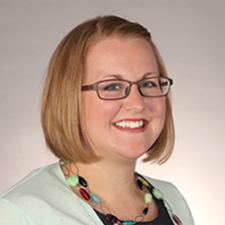Latinos’ Support for School Choice Outpacing Nation
INDIANAPOLIS (Sept. 10, 2015) –Latinos living in the United States support school choice in higher numbers than the general population and nearly all other demographics, according to a new survey released today by the Friedman Foundation for Educational Choice.
The survey found seven in 10 Latinos support some type of school choice, including vouchers, tax-credit scholarships and education savings accounts (ESAs)—the newest type of school choice policy.
Latinos’ level of support for school choice measures was also found to be significantly higher than the national average. Seventy-one percent of Latinos said they support school vouchers compared to 61 percent nationwide. Seventy-six percent said they supported tax-credit scholarships for children to attend the school of their choice. Nationwide, 60 percent support tax-credit scholarships.
Seventy-three percent of Latinos favor ESA policies, which give parents an education expense account to spend on a variety of learning services for their children including, but not limited to, private school tuition. Across the country, 62 percent support ESAs.
“Many Latino families believe their children are zoned to attend, in their own words, some of the worst public schools in America, and they want more options,” said Robert Enlow, president and CEO of the Friedman Foundation for Educational Choice. “They know that a good education will create opportunity for their children to move ahead in life.”
Last spring, Nevada—where Latinos make up 40 percent of the statewide student population—became the first state in the nation to adopt ESAs for all 453,000 of its public school students. Nationally, 58 private educational choice programs ranging from vouchers to tax deductions are currently operating in 27 states and the District of Columbia.
The survey also found stronger support among Latinos for public school choice options, such as charter schools. Sixty-two percent say they favor them compared to the national average of 53 percent.
Other significant findings from the survey include:
- When asked what school they would prefer to choose for their child, 46 percent said they would choose a private school; 32 percent, a public school; 12 percent, a charter school; and 9 percent, home school. Estimated actual enrollments today show 92 percent of Latino school children attend traditional neighborhood public schools.
- Despite their high levels of support of school choice options, Latinos (60 percent) continue to believe teachers’ unions—which lobby against school choice policies—have a positive impact when they endorse political candidates.
- Latinos are more likely to support more standardized testing for their public schools than the national average. And when it comes to rating solutions for “low-performing” schools, 53 percent of Latinos favor student-centered interventions, such as vouchers, tax-credit scholarships and ESAs.
“If this survey tells us anything, it tells us Latinos place a high value on educational quality,” Enlow said. “No matter their background or income, Latino parents desire as many opportunities for their children as possible, and the American public education system should be responsive to that.”
Braun Research, Inc., interviewed 1,002 adults in the 50 states and District of Columbia by live telephone calls during the final weeks of the school year, April 22 to May 12. Additionally, there was an oversampling of 407 adult Latinos in order to produce a total Latino sample that included 532 completed phone interviews. The margin of error for the statistically representative Latino sample is ± 4.2 percentage points. The Friedman Foundation funded this project, developed the survey instrument, conducted the analysis, and published the final report.
To learn more about the Latino Perspectives report, visit edchoice.org/LatinoSurvey2015.
To learn more about the 2015 Schooling in America Survey, visit edchoice.org/2015NationalSurvey.
###
About the Friedman Foundation for Educational Choice
The Friedman Foundation for Educational Choice is a 501(c)(3) nonprofit and nonpartisan organization, solely dedicated to advancing Milton and Rose Friedman’s vision of school choice for all children. First established as the Milton and Rose D. Friedman Foundation in 1996, the Foundation promotes school choice as the most effective and equitable way to improve the quality of K-12 education in America. The Friedman Foundation is dedicated to research, education, and outreach on the vital issues and implications related to school choice.
More information contact:
Susan L. Meyers
National Media Relations Director
Friedman Foundation for Educational Choice
susan@edchoice.org 404-518-2271




